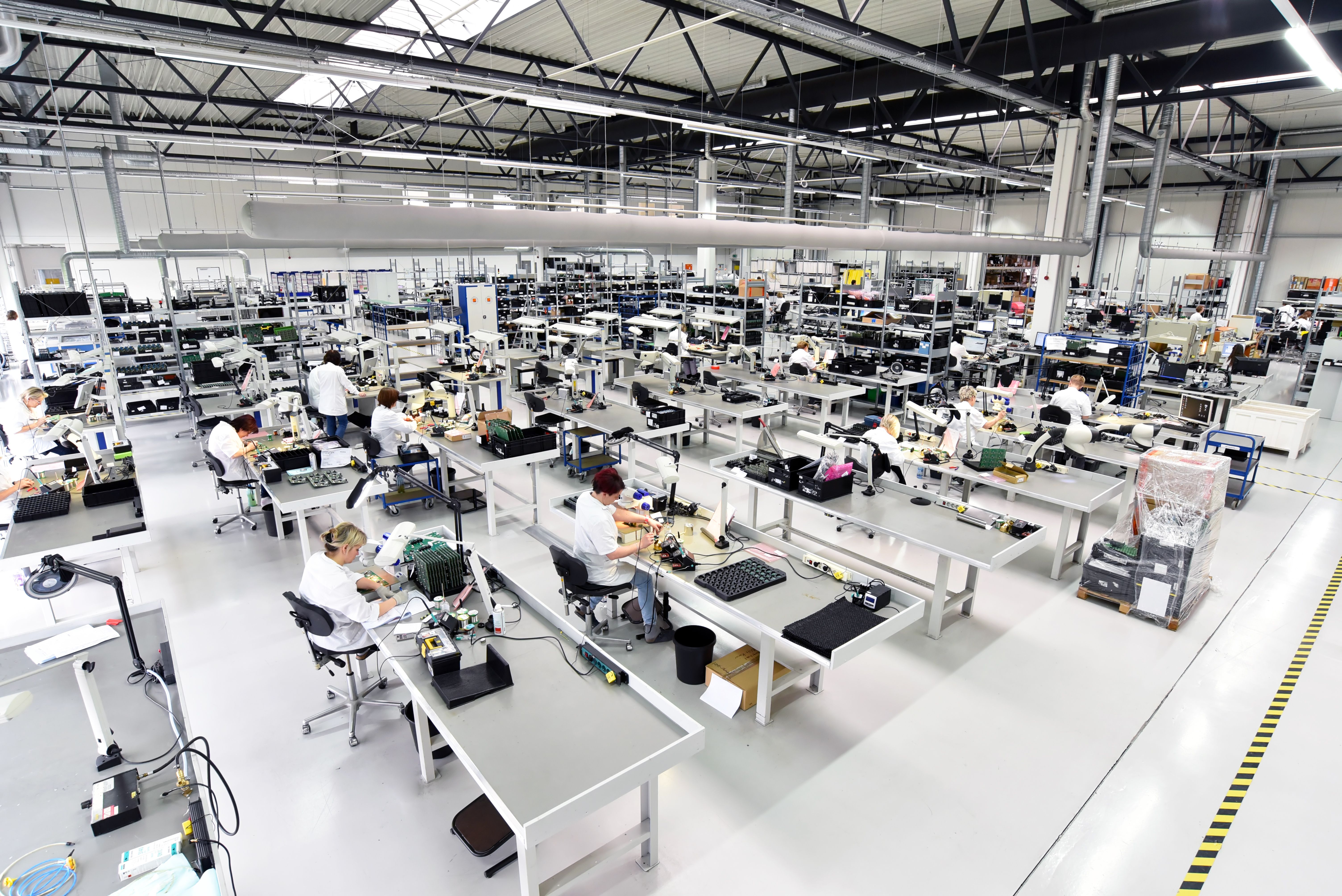Veganism is no longer just about food. While the main staple of a vegan lifestyle is your diet, it is increasingly about the choices you make in the rest of your life, too.
While it's easy to picture how you could make a vegan-friendly clothing choice, it's harder to imagine that it'd be possible or even necessary to consider whether your electronics were vegan.
This is partly because of the shifting nature of the movement and because the electronics industry is notoriously complex and often unethical.
So, let's explore whether you really can buy vegan electronics.
What Are Vegan Electronics?
Veganism is a movement founded on a compassion for animals. Followers believe that animals should not be treated as commodities for our consumption or enjoyment. Instead, they should be protected from the impacts humanity has on the environment. For many years, this was expressed as a desire to remove animal products from your diet. It was also considered a fringe movement and, in some cases, derided.
Recently, popular opinion has begun to change. Increasingly, people are switching to a vegan or plant-based diet and reducing their reliance on animal-based products. Outside of food, this has been particularly notable in the fashion industry, where previous staples like fur, feathers, and leather have been gradually replaced with synthetic alternatives. The same is true in the beauty sector, where perfumes, creams, and makeup are now often vegan-friendly and not tested on animals.
It's harder to imagine the existence of or need for vegan electronics. After all, these often metal and plastic products aren't coated in leather or fur, and they are produced in industrial factories that seem far removed from the exploitation of animals. However, there's a growing awareness of the ethical issues raised by electronics production. Although supply chains are notoriously opaque, materials like glue often contain animal products.
Then there are the raw materials. Most end suppliers and brands would not be able to trace where the metals and plastics in their products originate, but most are mined or produced in poor working conditions. The mining and production of metals are particularly problematic, with labor abuses and some suggestions of unsafe working environments and illegal practices.
Consequently, the concept of vegan electronics would be those which aren't a product of unethical or immoral actions, supply chains, or commodification of animals. Whether those ideals are realistic or not is up for debate.
Animal Products in Electronics
Underlying all vegan beliefs is the conviction that animals are beings in their own right and that human beings have no intrinsic superiority over them. While the mainstream image of veganism relates to the production of meat and other animal-derived foods, many vegans oppose the use of animal products in other items, too. Terminology differs between industries, but this has been most evident in the beauty sector.
In the past, many creams, hygiene products, and makeup items contained animal-derived ingredients like gelatine and were also tested on animals. Neither aligns with a vegan lifestyle, and after years of campaigning, many brands now offer Cruelty-Free labels, highlighting that the product wasn't tested on animals. It's also increasingly commonplace to see Vegan-Friendly or Suitable for Vegans listed on the packaging to state no animal testing or animal products.
These products are usually made directly by the manufacturer from raw ingredients or by a third party on its behalf. It is possible to track where the elements originated and the methods of testing. Electronics supply chains are not so straightforward. Raw materials are processed in bulk, turned into factory-ready materials, and sold to component manufacturers. From there, factories assemble multiple ready-made components to form a finished product.
A typical smartphone may have up to 50 components, which themselves are made up of hundreds and sometimes thousands of smaller parts. Larger, more complex devices like laptops may have hundreds of high-level components. Because of this complexity, electronics companies are unaware of the origins of the materials. Metals are unlikely to be impregnated or coated with animal-derived products, but other supporting materials like glue often use them. The same is true of some plastics.
While it would be a significant undertaking to be accountable for supply chains, it also grants these brands some immunity from accountability. By maintaining a distance between themselves and the originating suppliers, they can claim ignorance and continue to benefit from these practices' lower prices. These effects combined mean that you can never truly determine whether an electronic product is vegan-friendly, nor would it be practical to hold yourself to that standard when making purchasing decisions.
There are decisions you can take, though. For instance, you can make vegan-friendly headphone choices by looking for sets without leather in the headband or earpads. It's also possible to choose synthetic accessories rather than a leather phone or device case. Not only does this align with vegan ideals, but it is also often the more affordable choice, as there's usually a financial premium associated with leather goods.
Ethical Issues in Electronic Supply Chains
Veganism might be predominately about the treatment of animals, but vegans are also likely to be sympathetic to other humans' treatment. There might be ambiguity about the materials used in your electronics, but the ethics (or lack of) in supply chains are well-documented. One of the most infamous examples was how workers were treated in one of Foxconn's factories in Shenzen, China.
Foxconn is one of the world's largest electronics manufacturing suppliers and produces items for Apple and HP, among others. In 2010, many staff at the site took their lives while at work. Across the year, there were 15 documented suicides at the facility. The high incidence led to media coverage of the conditions at the factory. Apple investigated and said it was committed to ensuring high standards. Four years later, similar reports surfaced about other Apple suppliers.
Of course, this isn't limited to Apple, but these issues are easier to trace in the company's supply chain. Apple famously keeps strict control of the design, manufacture, and inter-operability of its devices, so it is more visibly accountable than most electronics brands. However, the overwhelming majority of technology products are manufactured in similar factories under similar conditions.
Notably, production is also contracted out to countries with less prescriptive labor laws and where the cost of production is lower. Most Western technology brands produce items for as low a cost as possible while selling them at high profit margins. Many investigations have found factories engaged in unethical child labor. Even if it isn't strictly illegal in some places, most people would be surprised to learn that their new smartphone, laptop, TV, or smart gadget was the product of child labor.
During Donald Trump's presidency, the US created a trade war with China. According to the worker's rights associated, China Labor Watch, the trade war exacerbated human rights abuses in many of China's factories. The lower demand for Chinese goods and increased strain on the economy led to pressure to reduce costs.
While problematic, these issues are commonplace in electronics manufacturing. However, go further down the supply chain, and the problems worsen. With a degree of anonymity, materials suppliers overwork their staff and place them in dangerous positions, sometimes even working with toxic or harmful materials.
Taking a Pragmatic Approach to Vegan Electronics
Unfortunately, these issues are not going to be resolved any time soon. Electronics production is a truly global endeavor, and each product relies on components and services from a multitude of providers. Some activists claim that this is the direct result of globalization, an argument advanced by the former US president, but that's not necessarily the case.
During the COVID-19 pandemic, as reported in The Guardian, clothing factories in the UK were found to be exploiting workers in similar ways, forcing staff to work long hours in unsafe conditions for low pay, an indication that these issues arise even when regulations and legal obligations exist. Aside from the human impact of gadget production, it's also impractical or even impossible to trace the vegan-friendly status of all components used in each product.
However, there are ethical and vegan-friendly choices you can make. Products with aesthetics and comfort in mind, so predominately items you wear like headphones, watches, fitness trackers, and mobile accessories, sometimes utilize animal-based materials like leather. There are always synthetic alternatives, usually at a fraction of the premium price attached to leather.
In terms of the gadgets themselves, while you can't assess the components, you can purchase from an ethical business. For instance, avoiding Amazon (which produces its own AmazonBasics range of low-cost electronics and household goods) and shopping directly with the manufacturer or an ethical Amazon alternative. It's also important to be mindful of your shopping habits. These sites to help you find ethical software and online shopping alternatives are a great place to start.
We're constantly encouraged to upgrade our computers, smartphones, and headphones with new models released annually. Before rushing out to buy the latest gadget, consider whether you really need to upgrade or if your current device does everything you need. Although marketing forces are against you, it's crucial to reduce your impact on electronic waste. Likewise, repair devices if you can and support your local Right to Repair legislation.
If you want to step further towards ethical gadgets, consider investing in the Android-based Fairphone 3. The company is working towards full supply chain traceability, is committed to the fair treatment of workers and easily repairable devices. Fairphone is one of only a handful of companies in this space and even offers a de-Googled version of its operating system. If you're interested, check out our full review of the Fairphone 3.
Slow but Positive Progress
Veganism has transitioned from a fringe movement into a globally-recognized lifestyle. The electronics industry's problematic practices continue to be under scrutiny but are also incredibly complex, with interweaving features that touch upon all areas of our lives.
For instance, the ongoing debate around Big Tech firms' quasi-monopolistic power like Amazon, Facebook, Google, Apple, and Microsoft directly influence how these companies source, design, and manufacture products.
While it'll take years to correct many of these underlying issues, you don't have to wait for every industry to adopt a more vegan-friendly stance. Fortunately, there are many smartphone apps to get you started with a vegan and eco-friendly diet.





